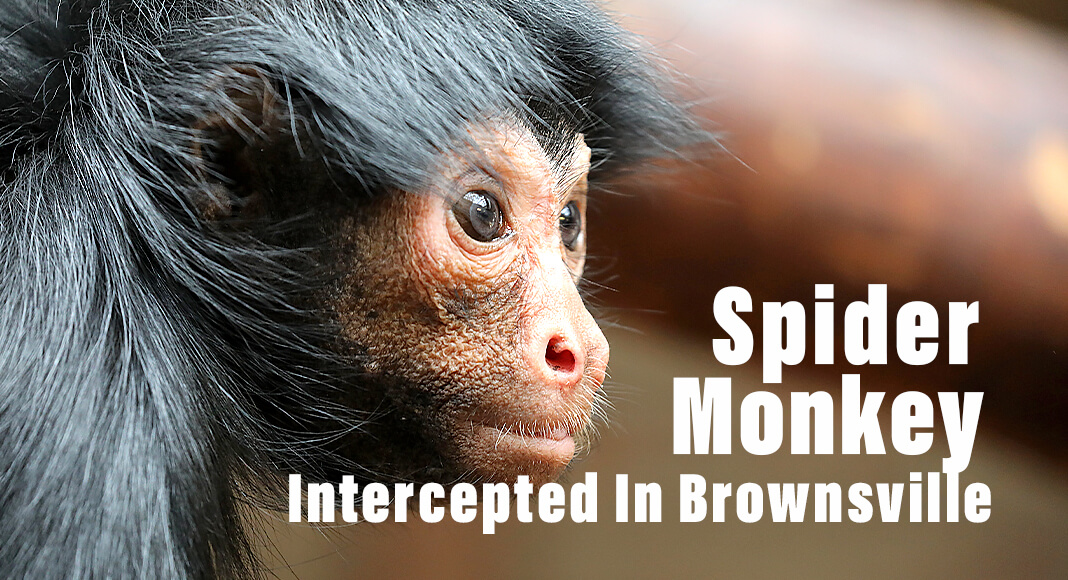
Texas Border Business
BROWNSVILLE, Texas – U.S. Customs and Border Protection (CBP) officers and agriculture specialists at the Gateway International Bridge intercepted a live spider monkey in a vehicle in a single enforcement action.
“Our frontline CBP officers and agriculture specialists maintained their vigilance and encountered a live spider monkey hidden under a blanket,” said Port Director Tater Ortiz, Brownsville Port of Entry. “Some people may view these animals as pets, but they are protected species and CBP remains committed to preventing the spread of animal diseases and preventing the exploitation of protected animals.”
The incident occurred on June 14 at Gateway International Bridge when CBP officers referred a passenger vehicle for a secondary inspection. At secondary, CBP officers and agriculture specialists discovered a spider monkey hidden under a blanket.
HSI initiated a criminal investigation and arrested the driver. The spider monkey was returned to Mexico.
CBP would like to remind the public of the U.S. Department of Agriculture (USDA) Animal and Plant Health Inspection Service (APHIS) regulations that prohibit live birds, fresh eggs, and raw poultry from Mexico. According to the USDA APHIS, Mexico is affected with virulent Newcastle disease and Highly Pathogenic Avian Influenza (HPAI). Both diseases affect poultry, are serious diseases of concern, and are highly contagious. In addition, spider monkeys are protected under the Convention on International Trade in Endangered Species of Wild Fauna and Flora (CITES), their importation is regulated by the Centers for Disease Control and Prevention (CDC). Ultimately monkeys are prohibited from importation as pets.
On the border at land, air, and sea-based ports of entry, including Laredo, CBP officers and agriculture specialists continue to fulfill CBP’s agriculture mission by excluding harmful pests and diseases from becoming established in the United States. For more information regarding CBP’s agriculture mission, click on the following link. More information regarding HPAI or virulent Newcastle disease can be found at link or link.













